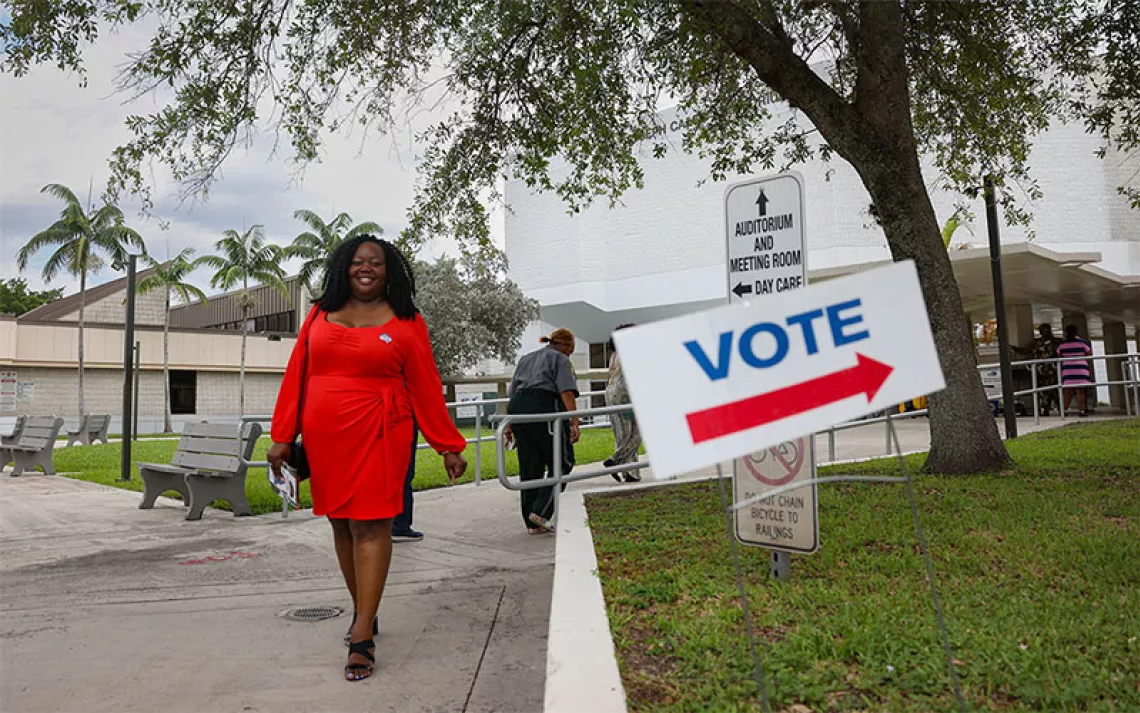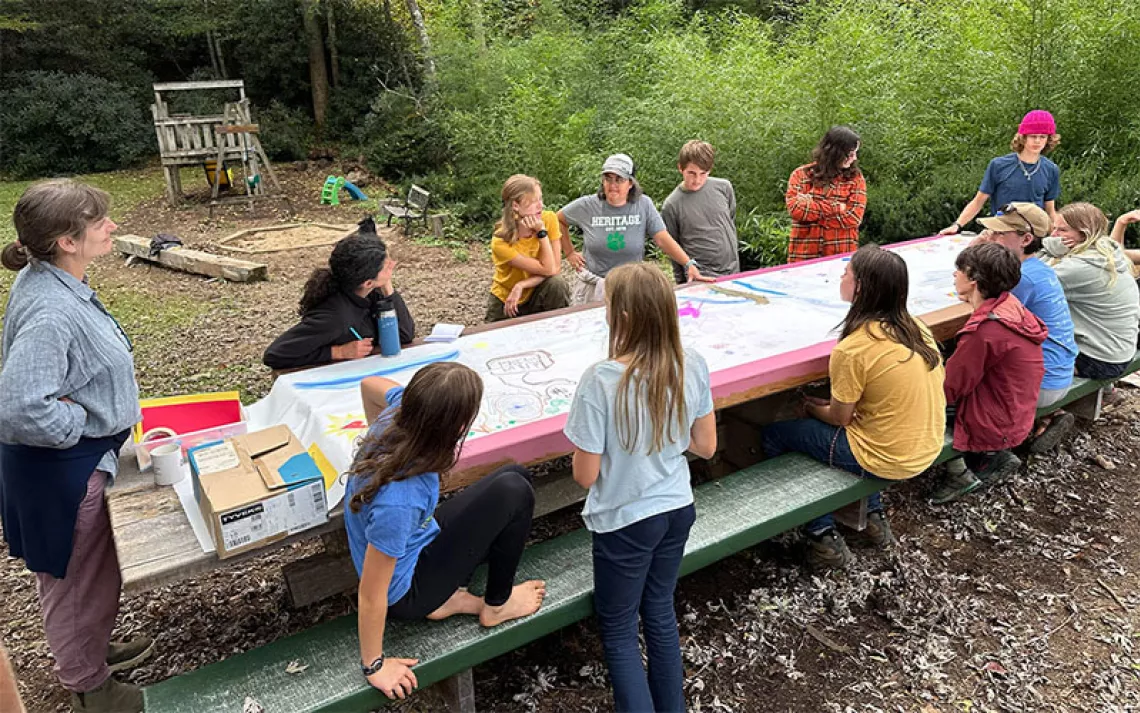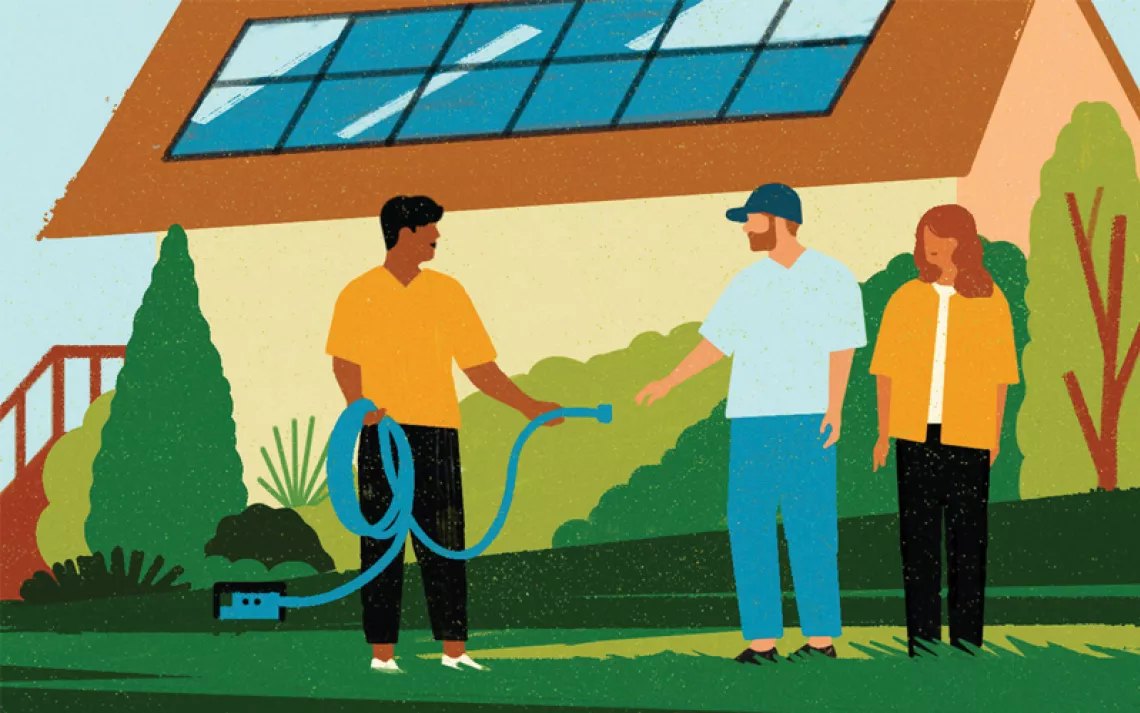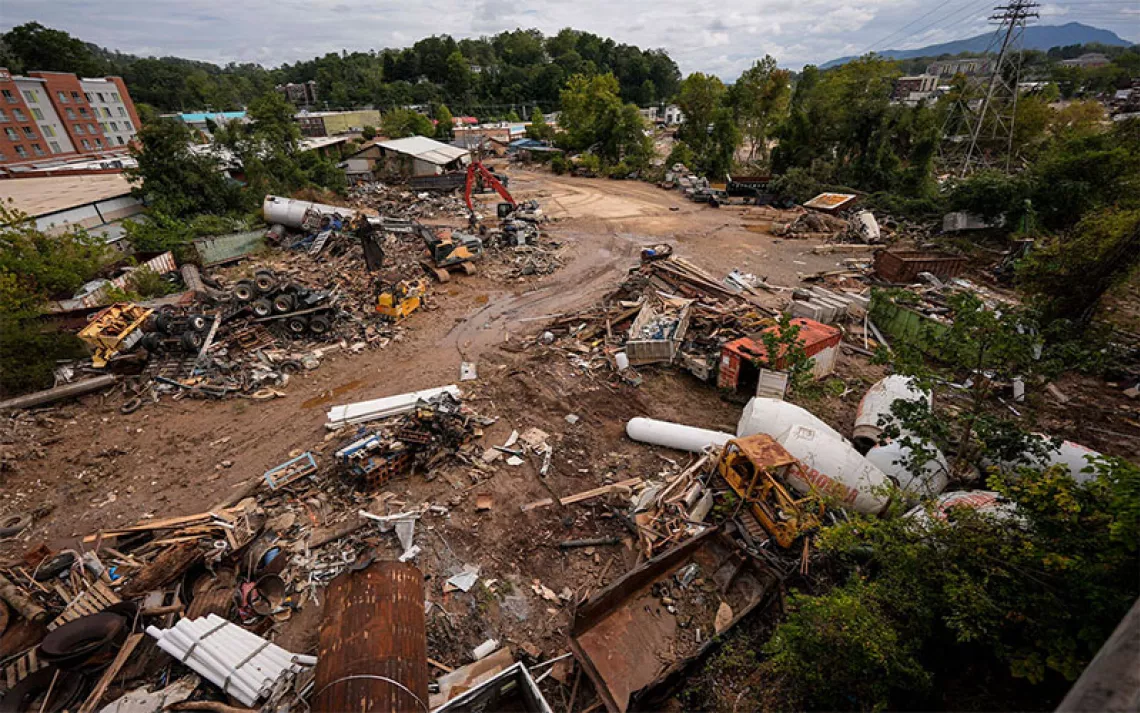Survivors of Climate-Change-Related Tragedies Demand Accountability
How one widow is calling out the fossil fuel industry in her quest for climate justice
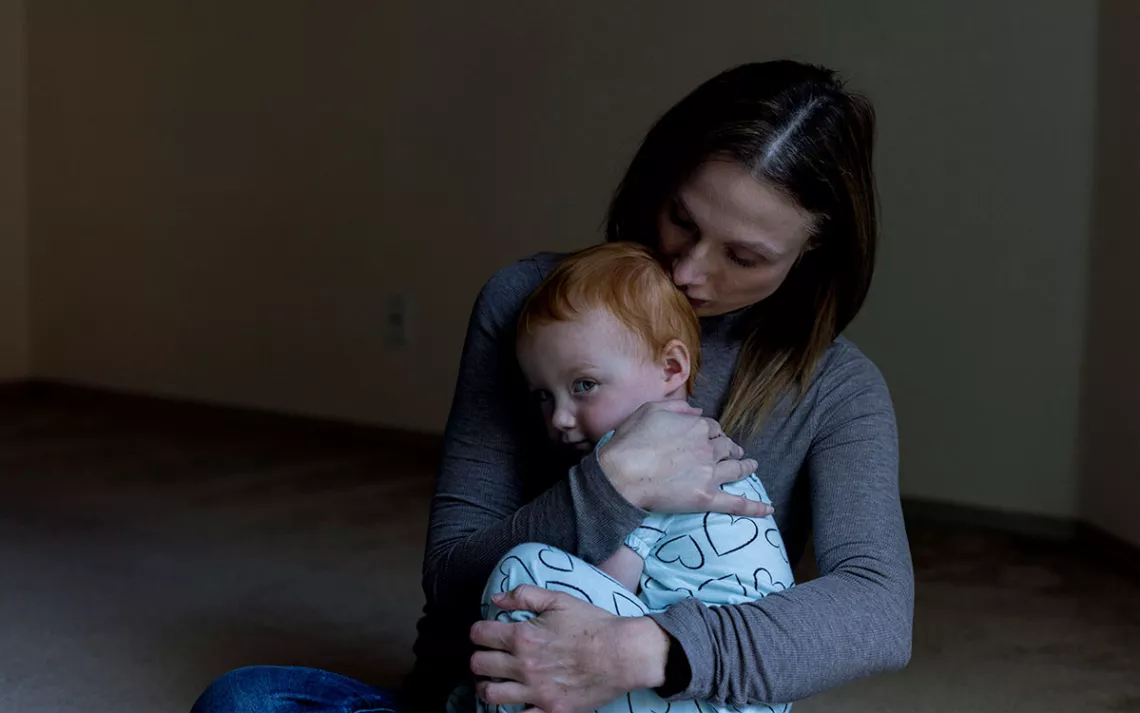
Amy Dishion with her daughter, Chloe. | Photo by Celeste Noche
On an overcast autumn day midway through the annual Climate Week gathering in New York City, Amy Dishion sat on a folding chair on a small stage and got personal with a roomful of strangers. “I’m here to tell the story of how extreme heat killed my husband, Evan Dishion, taking my best friend and my life partner from me forever,” she said to the roughly 60 people assembled at the Tribeca Screening Room in Manhattan.
Sitting beside her were three others whose lives had been upended by extreme weather events. Shauntá Floyd survived Hurricane Beryl, which slammed Houston in July, killing 42 people. Melissa Whittaker saw the restaurant she owns with her husband devastated by the 2023 flooding of Montpelier, Vermont. Reverend Richard Joyner’s farm in Conetoe, North Carolina, has experienced a whiplash of droughts and severe floods. The four had been brought together by a group called Extreme Weather Survivors, which represents the growing number of Americans who have firsthand experience of the death and damage that can come from climate chaos.
Dishion, dressed in all black, told the audience how she and Evan had met. It was a classic college romance, sparked when she walked into a class on the first day and sat in an empty seat next to a cute guy. They became study partners. Then their friendship blossomed into something more. “He was truly the most loving and genuine person I ever met,” she said.
They got married and ended up moving to Phoenix so Evan could pursue medical training as a neurologist. After four consecutive miscarriages, Amy gave birth to a girl in 2022. Their daughter, Chloe, was their miracle child. Just three months after she arrived, tragedy struck.
On Labor Day in 2022, Evan set out at 6 a.m. on a group hike through the Spur Cross Ranch Conservation Area in the town of Cave Creek, just north of Phoenix. It was a long hike, Dishion recalled, and the group had planned to be out for most of the day. A heat warning was in effect; the temperature would eventually hit 109°F.
Several hours into the trek, someone in the group suggested they turn back. But they forged on. One of the hikers started to get cramps in his legs, and a friend remained with him in the shade while Evan and several others summitted Elephant Mountain. They planned to check on their companions later, then things quickly went wrong.
They got lost and ran out of water. One of the hikers started hallucinating. Evan realized that they were in serious danger and needed to call for rescue. But they were out of cellular range. Evan began stumbling, then passed out. Another hiker moved him into the shade, stayed with him for a bit, then went to find a pocket of cell service. By the time the rescue helicopter arrived, Evan had died from heat stroke. He was 32.
When Dishion got the phone call from the local hospital later that day, she went into shock. The feeling would last for a long time. “It took me a year for my brain to even understand what had happened,” she said. “I had to reorient to a new reality that didn’t make any sense to me.”
Dishion told the audience, “It’s important for me to say heat does kill. Even a young, fit person like Evan is not immune. . . . Our planet is warming, and more deaths are coming.”
According to data from Arizona’s Maricopa County Department of Public Health, the greater Phoenix metro area recorded 425 heat-related deaths in 2022. The following year, that figure rose to 645—an increase of over 50 percent. Heat-related deaths in Maricopa County have been increasing each year since 2015.
Dishion now lives in Salem, Oregon, where she and Evan grew up. The stay-at-home mom told the audience that her daughter, a redheaded toddler, has become her reason for living. Though still feeling jet-lagged from the flight to New York the day before, Dishion would be returning home that night to get back to her.
When asked why she thought it was important to travel across the country to share her story, Dishion had a ready answer. “I want to make a difference and help save lives,” she said, mindful of how outdoor recreation has become more dangerous on a rapidly heating planet.
Dishion also has a larger aspiration. “On a bigger scale, we’re seeing these heat waves getting more intense and more frequent,” she said. “And I’m hoping to effect policy.” She told the audience bluntly: “I hope that our government gets out of bed with the fossil fuel industry.”
She would like to see the major fossil fuel companies held accountable for their role in the climate crisis—especially given the evidence that they knew long ago about the dangers of their products yet lied to the public about the risks. “One hundred percent, it’s important to hold them accountable,” she said.
Chris Kocher cofounded Extreme Weather Survivors in 2024 after previously leading networks of gun-violence survivors, and he said that he’s seen firsthand the power of personal storytelling in supporting healing and advancing policy change. “We believe truly that stories are the things that build movements, that change lives, and that build political progress,” Kocher told the audience in Manhattan.
For her part, Dishion emphasized the need for people to come together across political divisions to address the threat of climate change. “I hope that by telling my story, I can begin a conversation about how we as a community can create political will on both sides of the aisle to stop climate change in its tracks and save us from needless suffering and lost lives.”
 The Magazine of The Sierra Club
The Magazine of The Sierra Club
